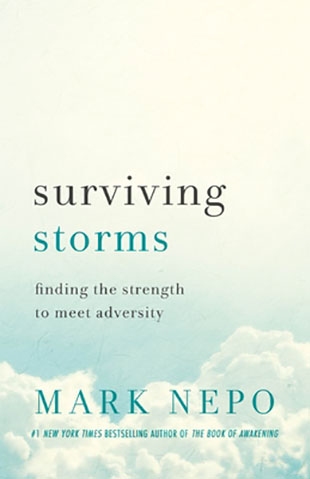“The word hallelujah comes from the Greek meaning ‘Praise the Lord.’ The Hebrew version of the word means ‘Praise God!’ From a songwriter and poet as human and all-encompassing as Leonard Cohen, we can understand this command of praise as more than an encouragement to look on the bright side of things.
“More deeply, we are required to be fully human in order to face the hardships of living and to still praise the larger forces of life that carry us forward anyway. The way the swell and crash of a wave praises the ocean that lifts it. The way a seed in the mud praises the light it cannot see that is drawing it to break ground. The way a broken bone praises the unfolding of time that lets it heal. The way a bird with a broken wing, as the Greek poet George Seferis tells us, praises the wind that allows it to keep flying. When broken, as we all will be at some point in our journey, praising the larger forces of life – singing ‘Hallelujah’ – will help us breach, break ground, heal, and soar, one more time.
“The teacher Alisa Ungar-Sargon suggests that ‘The song’s central premise is the value, even the necessity, of praise in the face of confusion, doubt, or dread.’ That the holy and the broken cannot exist without each other is at the core of being a spirit in a body in time on Earth. Leonard Cohen echoes this perennial wisdom in another song of his, ‘Anthem,’ with his famous line, ‘There is a crack in everything. That’s how the light gets in.’
“We are all clumsy and, under all our awkwardness, graceful, if we can endure the clumsiness. We are all agitated and, under all our tension, at peace, if we can outlast the agitation. And yes, we are all fearful and, under that slow bead of terror that plagues us, no matter its cause, we are ultimately safe beyond our circumstances, if we can breathe under the fear long enough to shed it. If not by ourselves, then with the help of each other.
“Yet even when clumsy, agitated, and fearful, we can receive grace through our brokenness as well as our openness. This tension of traversing the human terrain to meet or release what is spiritual is a common theme in Cohen’s songs and writings, which bear more than one listening or read-through.
“The second verse of ‘Hallelujah’ speaks of the pleasure and suffering that King David experienced for loving Bathsheba. And though the journey between them broke him, she still drew ‘hallelujah’ from his lips. It seems no one is exempt from being humbled by the human journey and no matter how far we fall, no one is precluded from having the light flood through the cracks of our brokenness.
“The Jesuit philosopher Pierre Teilhard de Chardin said, ‘We are not human beings having a spiritual experience, but spiritual beings having a human experience.’ And yet, I think Leonard Cohen would say, what’s the difference? Don’t we live in the very center between our pain and the song of life, always being shaped by both? Isn’t any path to accepting our frailty and the light we carry equally just and sacred! Ultimately, it doesn’t matter whether you rise or fall your way into being fully alive. And most of the time when broken, we are stripped of all that is unnecessary, which only readies us for grace.
“The breadth and depth of the song confirms our very flawed existence and the fact that, through our flaws, we are supported by the deeper currents of life, whether we are full of wisdom or dragging around our bag of mistakes.
“What Leonard Cohen emphasizes throughout all his work is that neither drowning in our pain nor running from it will let the light in. Only staying broken and open, in the midst of all our flaws, will give us access to the resources beyond us that will sustain us.”
